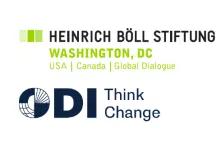Climate & Energy
Dossiers
Articles
Show more articles about Climate & Energy (275)
more pages about Climate & Energy
Show more Landingpages about Climate & Energy (14)
© Heinrich-Böll-Stiftung e.V.
Schumannstraße 8
10117 Berlin
T +49 (30) 285 34-0
F +49 (30) 285 34-109
www.boell.de
info@boell.de



















